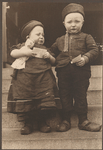--Augustus Sherman, Photographer, Ellis Island
It is not an original observation that the red states, in which people are overwhelmingly likely to erupt with fulminating resentment about the federal government, and where it is an article of faith that the feds take your money and you get nothing for it, are the very places where the return from those taxes is most intense. So Mississippi, West Virginia, Alabama are all states where for every $1 sent to Washington $1.5-$2 come back to these states.
Oddly, New Hampshire is a net donor state. Taxes in New Hampshire are among the lowest in the nation, overall; we rank #47 in taxes, without a state income tax or sales tax.
Of course, in New York, taxes are high, but look what they get for them! Mad Dog is in New York City today. Three days ago he hiked to top of Mount Major and today he wanders around the magnificent (but not free) Museum of Natural History, Central Park and the streets of the Upper West Side. This is a city which has much to teach Mississippi and New Hampshire. They believe in public spaces here, and the result is a community, a harmony of opposites.
Down below Houston Street on the lower East Side is the haunting Tenement Museum, with its photographs of immigrants getting off the boats at Ellis Island in all their native costumes, which were not costumes to them but ordinary dress. The faces looking into the camera are Slavic, Baltic, Germanic, Scandinavian, Orthodox Jewish, Irish and they flooded into New York City and built this throbbing, working metropolis into what it is today. You still see that variety on these streets.
E.B. White said there are 3 types of New Yorkers: The native, the commuter, and the refugee, whether that is a refugee from overseas or from Alabama and it is the refugee, for whom establishing a life in this city is an accomplishment in itself, who loves the city most.
Walking among the panoply of types here is like walking around in a Jackson Pollack painting--a harmony emerges out of the disorder and colors and shapes.
We don't have this variety in New Hampshire. But we separate ourselves even so.
When people resist community effort what often emerges is a conviction that "we" work hard for what we've got, and "they" are going to be given a free hand out.
Somehow, if this country is to get anywhere, we all have to get past that conceit.



Mad Dog,
ReplyDeleteWhat great photos, makes you wonder what their lives turned out to be like here..
Maud
Maud,
ReplyDeleteHard, I would guess, at least in the first half of their lives. But their children did better.
For those who arrived as young adults, there was not enough time to rise. But for their children, and for those who came as infants, there was time.
Mad Dog's own father grew up in a cold water flat, and died in his own home, which he considered palatial, at the end of what he described as a good life.
That generation, born in the USA in the early 20th century stood a good chance of being raised as a rising tide raised all ships. They got through the Depression, went to war, came home, went to school on the GI bill, bought houses with VA loans and started careers and businesses. Some got rich fast; some went bust, but most just rose with the rising tide, slowly, steadily; it was unspectacular but satisfying.
The distance that generation traveled in their life arc was much greater than what we have seen in the baby boomer generation. They went from poverty to comfort in a lifetime. The boomers went from comfort to a higher level of comfort.
Which is my point, despite the exceptions, in general, we all share a common fate.
Mad Dog